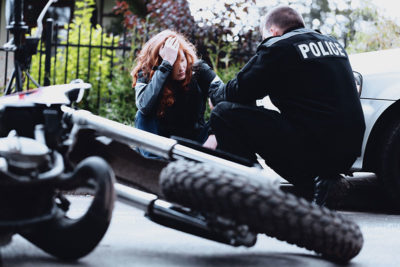 Police officers deal with stress and trauma on a daily basis. Their grueling schedules are just part of the problem. Police officers deal with fatalities, rapes, child abuse, domestic violence, and more. All this combined paints a part of the bigger picture of why substance abuse is prevalent among police personnel. When it comes to police substance abuse: police trauma and addiction, what are the options?
Police officers deal with stress and trauma on a daily basis. Their grueling schedules are just part of the problem. Police officers deal with fatalities, rapes, child abuse, domestic violence, and more. All this combined paints a part of the bigger picture of why substance abuse is prevalent among police personnel. When it comes to police substance abuse: police trauma and addiction, what are the options?
What Factors Lead to Trauma?
Many factors lead to stress and trauma for police officers. Here are just a few examples of what makes up events or actions leading to trauma.
Work Schedule
Working too many hours leads to a decline in critical thinking skills. Many police officers work rotating shifts. These shifts typically range in 12-hour increments. The main problem is that the shifts often come in consecutive days with days off at the end. So, a police officer might work five days at 12 hours each before having time off to unwind and rest. This fatigue often leads to anxiety, depression, and other health issues.
Some police officers turn to substances to numb the pain or allow them to go longer on less sleep.
Public Criticism
Another factor leading to stress is public criticism. Never before in our history has the public so closely monitored what the police do. While there is nothing wrong with police officer transparency, this does add more stress. Some police officers may feel they cannot sufficiently do their job without someone criticizing it — or worse.
Dangers of the Job
It’s not a secret that the police deal with many dangers. According to The Balance:
On average, 64 police officers per year were killed by criminals between 1980 and 2014, according to the Federal Bureau of Investigations. A relatively small percentage, given there are approximately 1 million officers working in the United States. But in 2013, nearly 50,000 police officers were assaulted – meaning 9 out of every one hundred officers were attacked.
While not all police officers find themselves exposed to this type of danger, it is not uncommon. And not all dangers are due to criminal activity. In fact, many are deaths due to an accident. This includes traffic stops, car accidents, and even training accidents.
Exposure to Trauma or PTSD
Post-traumatic stress disorder is something often associated with military personnel. While the military do experience PTSD in high numbers, police officers have a high rate of PTSD as well.
This is because police officers have to respond to everyone’s worst day. While you may have something horrible going on in your life at this time, a police officer sees this kind of thing multiple times a day — day in and day out.
Imagine going from a domestic violence call to a homicide and then to a car accident. This may not happen every time a police officer goes to work, but it is just an exaggerated account of what actually goes on.
This day-in and day-out exposure to trauma increases the risk of PTSD and PTSD symptoms.
Statistics on Police Substance Abuse
The staggering statistics on police officers and substance abuse show just how widespread this issue is. One out of four police officers on the street has an alcohol or drug abuse issue, and substance use disorders among police officers are estimated to range between 20% and 30% as compared to under 10% in the general population.
This is compounded by the figures showing that the suicide rate for police officers is four times higher than for firefighters. Along with those figures:
- Between 7 percent and 19 percent of police officers experience PTSD symptoms.
- The suicide rate is 2.3 higher than the homicide rate among police officers.
- Over 15 percent of female police officers and over 11 percent of male officers were at at-risk alcohol consumption levels.
- A 2007 survey by NCBI showed almost 38 percent of respondents with more than one drinking behavior.
- Between 120 and 150 police officers commit suicide each year, at a rate of about 17 suicides per 100,000 officers.
Treatment Options for Substance Abuse Issues
Whether it’s a way to control stress and anxiety or social pressure, police officers have an increased risk of substance abuse issues. The important takeaway is that treatment options increase the chance of a healthy and sober lifestyle.
At Transformations Treatment Center, our program treats more than just substance abuse. It addresses depression, anxiety disorders, and PTSD as well.
Through a variety of treatment options, police officers receive a plan that improves emotional wellness, mental wellness, and physical wellness. This program helps them cope with stressors that would typically trigger substance abuse.
Here are some of the treatment services:
- Pain, stress, and anxiety therapy
- EMDR trauma therapy
- Neurofeedback
- Individual therapy
- Group therapy
- Health club/private trainer
- Holistic nutrition with dieticians, natural supplement protocol, and chiropractic services
- Beach time and scheduled pool times
This is all done in a non-institutional setting where everyone feels welcome and comfortable. Police officers get their own private bedroom with a queen-sized bed and bathroom. There is also access to a phone with long-distance and cable.
Police officers get compassionate and effective treatment that helps them begin the path to recovery. If you or a loved one is a police officer and needs help, contact us to speak with one of our friendly, helpful treatment specialists.
